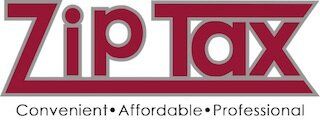IRS Stimulus Checks: What You Need To Know
Federal Response to the COVID-19 Crisis
The coronavirus outbreak is a crisis that has impacted almost every aspect of daily life. Many questions about our health, our investments, and our livelihoods have risen to the surface during this time of unprecedented uncertainty. Thankfully, the federal government has taken steps to ease the financial burden of many by providing stimulus checks directly to individuals. It’s important to understand the details of this stimulus package as well as what funding people in various financial positions should expect to receive.
Economic Impact Payments
The checks the government will be providing to individuals are formally called Economic Impact Payments. These payments will be distributed to most taxpayers, but also to most seniors and retired workers. Checks will be $1,200 for qualifying individuals and $2,400 for people who are married and file taxes jointly. The government is also providing an additional $500 per eligible child.
Who Is Eligible?
People who meet the following criteria in terms of gross annual income are eligible to receive the full payment amount:
-
Individual taxpayers who make up to $75,000
-
Heads of households who make up to $112,500
-
Married couples filing a joint return who make up to $150,000
Those who fall into the following income brackets can expect partial payments based on adjusted annual gross income:
-
Individual taxpayers who make between $75,000-$99,000
-
Heads of households who make between $112,500-$136,000
-
Married couples filling a joint return who make between $150,000 and $198,000
For people who receive Social Security benefits or Railroad Retirement benefits, the payments will be distributed automatically. Recipients of disability and veteran benefits are also eligible, as well as those who make no income or who don’t make enough income to file taxes.
How Can You Receive Payments?
Many people will not need to take any action to receive payments. For those who filed taxes in 2019 or 2018, the funds will be issued either by mailed check or direct deposit. For those who already receive benefits from the government such as Social Security payments, the funds will be issued via whatever method is already being utilized. People who need to claim eligible children or who have other financial circumstances can use the tools on the IRS website. The IRS will also issue letters to individuals' current mailing address detailing how the payment was made and if there were any issues. Keep in mind that the IRS will not contact you asking for any personal or financial information, so be cautious about potential scammers who might try to use the payments as a reason to request personal information.
Experience Matters
Now, more than ever, experience matters. Staying informed and up to date on the Economic Impact Payments can help ensure you stay on top of your finances. Zip Tax is here to help you navigate these uncertain times, and to provide all the professional services you need.
